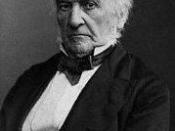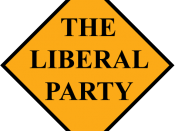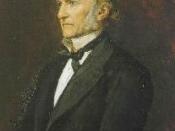Gladstone's transition from Tory to Liberal was certainly not an erratic decision made overnight. His drift from the high Toryism of his youth began in the 1840s and found final confirmation in 1859 when he quit the Conservative Party to join Palmerston's government. The shift in outlook reflected the combined effects of a new conception of religious freedom, the influence of Peel and the principle of nationality.
The first of these liberalizing influences stemmed from a conviction that Church-state relations were a hindrance to faith and that freedom and equality of all creeds and sects were essential requirements of true belief. The personality and performance of Peel, whom Gladstone served as president of the Board of Trade 1843-4 and colonial secretary 1845, were no less important. Peel's mastery of government administration and his devotion to duty and economic liberalism made a deep impact on the style and substance of Gladstone's politics.
The third influence, that of nationality, derived from Gladstone's interest in the language and culture of Italy, from which emerged a growing sympathy for the cause of Italian unity and liberty. It was an aspect, which he returned to later on during the Bulgarian agitation of 1876 and the case of Irish Home Rule. There is an argument, which suggests that the nationalist sympathies aroused by Italian Unification was a major aspect enabling him as a leading Peelite to leave the political wilderness and accept office under Palmerston, and begin his years as a constructive statesman. Gladstone is reported to have believed that Italy was significant in his growing belief in "liberty and justice". He saw the unification as an event of justice and coercion. This, together with his strong Christian beliefs, forced him to think how he could not support a question of justice against oppression. He believes...


